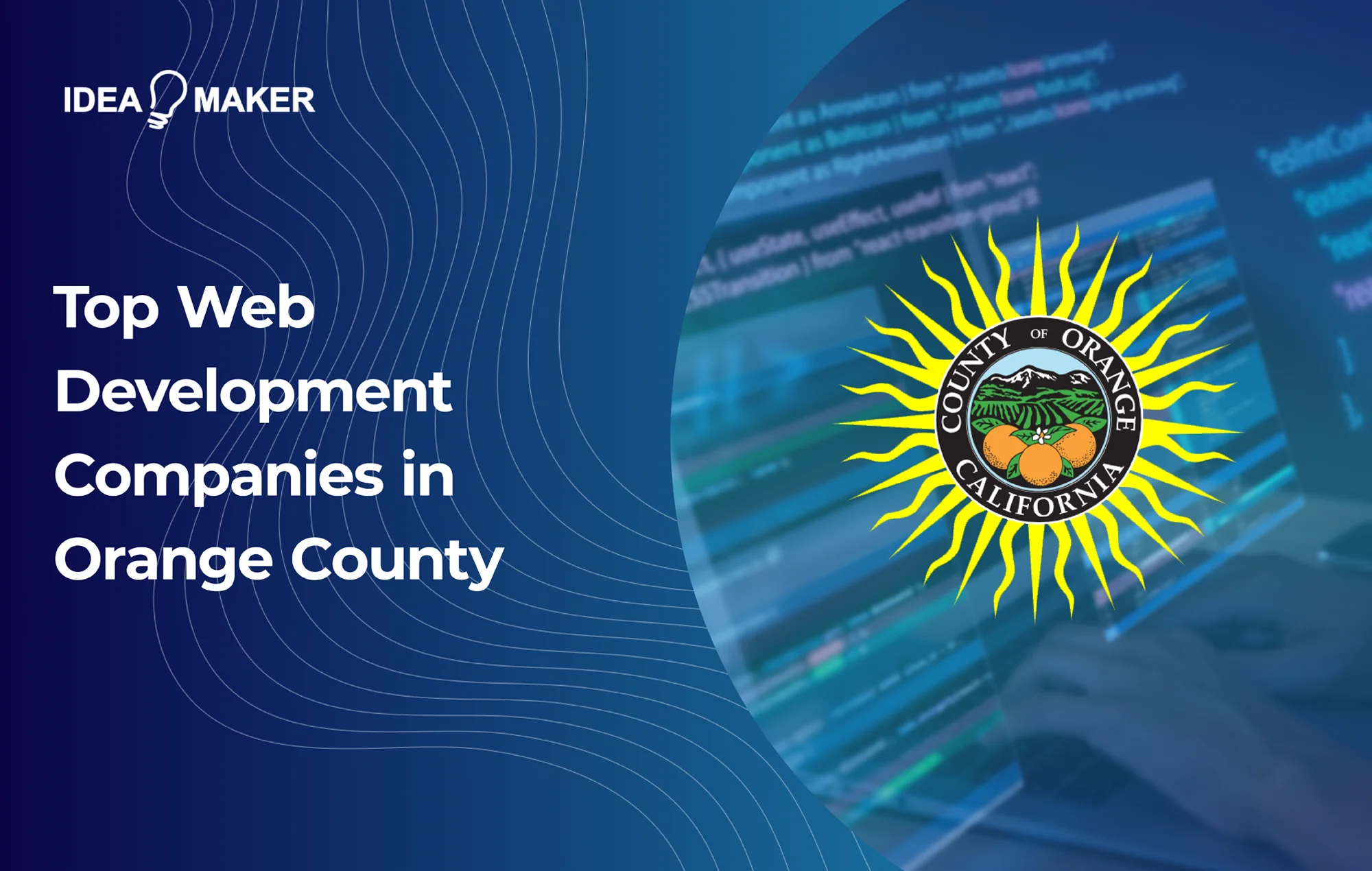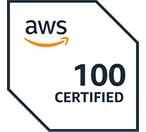Some time ago, people had to rely exclusively on the banking system for several types of dealings, which led to many delays in transactions and required in-person transactions. Then, fintech came to revolutionize banking as a whole. It introduced quick transactions, superior safety, and many quality of life features for customers, including the ability to make all kinds of transactions online.
Fintech is a booming industry, and several tech companies saw a perfect opportunity to join the financial business by investing in fintech software development services to expand their portfolio. In this article, we’ll learn more about fintech, the companies working with it, the many types of fintech, and how Idea Maker can aid you in building your very own fintech system.
Table of Contents
What is Fintech Software?
Fintech software is a term derived from Financial Technology. It covers all types of tech solutions meant to speed up, improve, or simplify the delivery and usage of any financial service. However, fintech software goes beyond just transactions. They are present in blockchain, insurance, risk management, accounting, digital lending, and much more.
The History of Fintech
Fintech is the fastest way to move money from one point to another, even across countries and overseas, but it wasn’t always like this.
While the technology is widespread today, it’s been around since 1866. Its infrastructure was laid out with the first transatlantic cable and then used first by US banks in 1918 to implement the first electronic fund transfer through Fedwire, telegram, and morse code.
The second wave of fintech software began in 1967 when the technology left the analog behind and embraced the digital with today’s systems like SWIFT, NASDAQ, BACS, and more. The era was marked by electronic trading launched by NASDAQ in 1971 and the foundation of PayPal (originally called Confinity), paving the way for a new type of payment system that would later become popular worldwide.
Then, after the internet popularization in 1999 and the dot.com bubble, fintech became an intrinsic part of the daily life of every American.
The third wave of fintech started in 2008 with the launch of Wealthfront. It provided a wide array of automated investing services and advice for every American.
Today, startups like Square lead the modern era of fintech, providing mobile payments, cryptocurrencies like bitcoin with decentralized transfers, and P2P money transfer services such as Transferwise (now Wise).
Examples of Fintech Software
Several large companies use fintech today with great success. They are shining examples of how far you can go when employing fintech software development to expand your business, bring innovation, and allow customers greater financial freedom. Let’s explore these companies and what they do.
Robinhood
What Is It?
Robinhood is a fintech company focusing on offering commission-free trading. They have a straightforward way to facilitate people into investing and into the stock market without any previous knowledge. You can access Robinhood via the web and mobile through its app. Once logged in, the platform offers several tools to ease users into trading.
Uses
The app allows users to purchase fractions of stocks, real-time trading, exchange cryptocurrencies, choose the size of the investment, invest in exchange-traded funds, and much more. The flexibility of options lowers the barrier to entry for anyone wanting to invest and offers a comprehensible system to help users keep track of assets and stocks.
If you use the mobile version and want to keep yourself well-informed about investment fluctuation, the app allows fine-tuning of your notifications, making it easier to buy, sell, and keep yourself up to date.
Mint
What Is It?
Mint’s main goal is to aid its users in organizing, visualizing, and understanding their financial situation, bringing together all your financial data to one place.
Their app is a prime example of how fintech software development companies can completely change the lives of their users for the better. It makes all their financial data available in one place, ensuring common problems like late bills, subscriptions, and filing taxes become a non-issue.
Uses
Mint leverages fintech software development by allowing its users to connect bank accounts, track monthly bills, set budgets for specific uses, categorize transactions, set up alerts when going over budget, track investments, and lots more.
The app is built to allow financial management to be straightforward, making it easy to understand where money is being spent and giving you more control over your cash flow. It also offers several calculators to help you better understand your spendings, like calculators for loans, retirement, net worth, travel, and more.
Fintech Industry Development Trends
With the popularization of the fintech industry, several businesses turned to fintech software development companies. You can hire a company like Idea Maker to create applications and websites in popular financial areas like blockchain, financial data analysis, data aggregation, robotic process automation (RPA), voice-enabled payments, and others.
Today’s Fintech Industry
According to GlobeNewswire, the fintech industry will grow at a Compound Annual Growth Rate (CAGR) of 23.58% in four years. This growth mainly comes from large investments in technology by startups, banks, and companies.
There’s no sign of the fintech software development industry slowing down as major players like PayPal Holdings, Robinhood Markets, Inc., and Google Pay (Alphabet Inc.) lead the industry with the constant release of new services, products, and frequent innovation.
Where Is Fintech Headed?
While software development for fintech can be pricier than regular applications and websites due to the need for ironclad security, there’s a large market quickly expanding in Asia-Pacific, North America, and Europe. In addition, more companies are exploring investing in fintech software development and research with the increased adoption rates.
Currently, companies are figuring out the best investments and exploring the best options for the next five years regarding fintech. For instance, AI-driven interactions for banking services, voice authorized payments, distributed ledger technology, fully digital banking services, and regulatory technology.
Challenges Facing the Fintech Industry
The fintech industry is large and profitable but comes with several challenges that must be dealt with to thrive. The main challenges are security, technological advancement, and regulatory compliance.
Security
Fintech companies deal with sensitive banking information and personal client data, making them a prime target to cybercriminals. Additionally, these companies tend to move high volumes of money on a daily basis. So companies in the industry must go to great lengths to constantly improve upon security to avoid leaking information and keep the user’s money tightly secured.
Technology
Companies that want to succeed in the industry must constantly innovate by releasing new features, leveraging existing technologies, and employing cutting-edge solutions to get ahead of the competition. As a result, most companies invest in artificial intelligence, cloud computing, and big data to improve their platform.
Regulations
Fintech businesses working with digital banking must comply with several financial and government regulations to operate. These regulations change based on country, government, and even state. Dealing with regulations makes most startups avoid this type of fintech due to regulatory and legal costs, making it one of the most profitable types of fintech software.
Fintechs focused on digital lending must comply with several regulations, including the Allowance for Loan and Lease Losses (ALLL), the Fair Credit Reporting Act (FCRA), the Gramm-Leach-Bliley Act (GLBA), and the Federal Trade Commission Act (FTC Act).
Several countries also employ regulations limiting the collection and usage of sensitive information, including health data, financial records, driver’s license information, and more, adding an extra layer of complexity to a fintech’s operation.
Types of Fintech Software
Fintech as an industry is divided into several areas. This section will outline the most prominent segments experiencing fast growth and increased adoption rates by companies embracing fintech software.
Accounting
Technology in accounting focuses on personal finance management by streamlining and simplifying complex processes. Processes include filing taxes reports, gathering financial data, organizing budgets, identifying overdue bills, generating invoices, and more.
Fintech accounting software uses APIs, artificial intelligence, and data analysis in fintech software development to provide automated solutions to light the burden of overwhelming financial management.
Blockchain
Fintech software development companies develop blockchain solutions to offer safe transactions and greater anonymity by employing a shared ledger of transactions. Blockchain uses a peer-to-peer network, nodes, and third parties to validate transactions.
No central authority holds any power over the ledger of transactions. It can be accessed by anyone using the platform, allowing users to see transaction details, timestamps, the amount transferred, and more. Any changes made to a transaction are automatically logged across all the ledgers and protected by complex algorithms, making tampering transactions nigh impossible.
Business Outsourcing
Companies previously kept all the information in-house, which led to inefficient operation and extensive operational overhead. In fintech, many companies outsource several parts of their fintech software development services to other companies and software developers to improve the efficiency of their operations.
Fintech software development companies like Idea Maker can build ironclad fintech security, manage cloud applications, automate arduous tasks, implement AI customer support, and more, making them a better and cheaper option for fintech developments.
Digital Lending
Digital lending is the alternative to traditional banking lending. By leveraging big data, refined algorithms, and cloud computing, companies can directly compete with conventional banks.
These companies can offer smaller fees, competitive loans, and customized automated services by working fully online. They also use readily available banking data and APIs to analyze each client and offer loans that make sense for each customer.
Digital Wealth Management
Digital wealth management is one of the highest growing sub-sectors in fintech. They leverage fully automated robot advisors and applications using artificial intelligence and machine learning to provide quality advice to customers.
Their prominence comes from the fast, efficient, and quality support at a fraction of the cost of human labor. It works by using algorithms that pull data from the banking system and provide a personalized and intuitive experience to consumers, making them popular in the industry.
HR & Payroll
Payroll fintech solutions aim to simplify categorizing, accounting, distributing, and accessing earned wages for companies. The category was crucial to reduce human mistakes, ensure timely payments, and streamline operations for many businesses.
These solutions also allow employees to request short-term emergency credit without the abusive rates practiced by conventional banks.
Why Businesses Need Fintech Software Development
Customers are making more online transactions than ever. They demand easy-to-use applications, fast transactions, smaller fees, greater flexibility, and overall better quality of life when managing their money. The financial industry is adapting by offering fintech software as a robust solution to automate many financial processes.
Saving Time
Customers no longer need to wait several days to transfer, deposit, or invest money. Nor do they need to physically drive to a bank agency to deal with financial matters.
With straightforward applications, automated customer support, and full online functionality, fintech software improves the quality of life of financial matters, leading to more transactions and greater profit from the comfort of our home.
Rapid Financial Data Processing
Gone are the days of waiting for a check to clear, a transaction to be approved, or a loan to be accepted. Instead, fintech software development direct integration to the banking system allows for nigh instantaneous bank transactions, making it fast to send money locally or internationally.
Live Data Reports & Analytics
Banking fintech software can generate bank statements faster and often for free, making them attractive to all customers. Meanwhile, software like Mint aggregates all your financial data in one place and presents it in an easy and comprehensible manner.
Most people have a hard time understanding where their money is being spent and better controlling it. The software makes it simple to understand the client’s finances and organize them accordingly.
Advanced Security
When hiring fintech software development companies, businesses are looking to reach the highest level of security as fintech solutions deal with sensitive billing and personal information from their clients. So any company looking to join the industry must have an experienced team of security experts to develop and manage the security of their application daily.
Idea Maker provides fintech software development services, ensuring that the application always has the latest banking security. Additionally, if any issues arise, Idea Maker has a team of experts able to avert any security crisis at a moment’s notice.
Remote Accounting
Fintech allows customers to remove the need for accountants from their financial life. These solutions are popular because they help manage, organize, and automate many arduous financial proceedings that would previously require an accountant to solve them.
With the right app, it’s just a matter of plugging in the necessary accounts and data and having the app do all the heavy lifting for you, making them especially useful for small businesses.
Multiple Account Management
Juggling multiple bank accounts, credit cards, loans, 401(k) forms, and bills alone is extremely taxing. Most people don’t have the time or knowledge to do it all on their own, forcing them to hire an accountant.
Fintech apps can solve all these issues by bringing all client financial data to a financial hub and presenting it in a comprehensible manner. So instead of spending thousands of dollars on a professional, customers spend a fraction of the amount using fintech software.
Summary
Fintech grows and evolves every year while companies invest billions in the industry for a slice of the market. Investing in fintech software development and following prominent trends can give you the edge over the competition.
Fintech makes use of cutting-edge technology like artificial intelligence, machine learning, and cloud computing to automate and increase the efficiency of several financial tasks, giving a personalized experience to users while providing greater quality of life.
Fintech Software Development with Idea Maker
If your business requires fintech security, machine learning, artificial intelligence, or needs fintech software development services for your app, Idea Maker has a team of tech experts competent in every technology used in fintech.
If you have an idea and want to discuss it with our team of experts, contact us, and we’ll be glad to go over your project and develop it to your specifications.


























